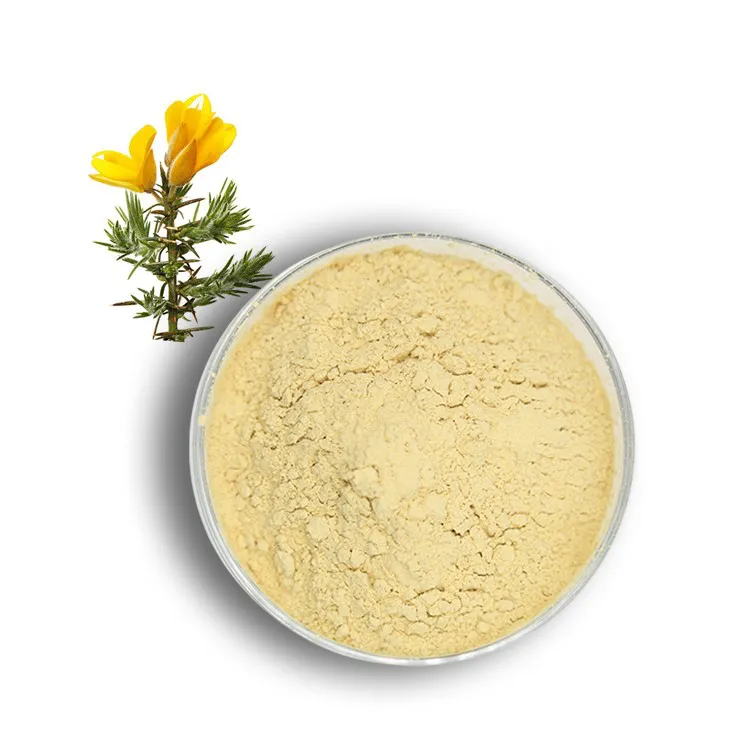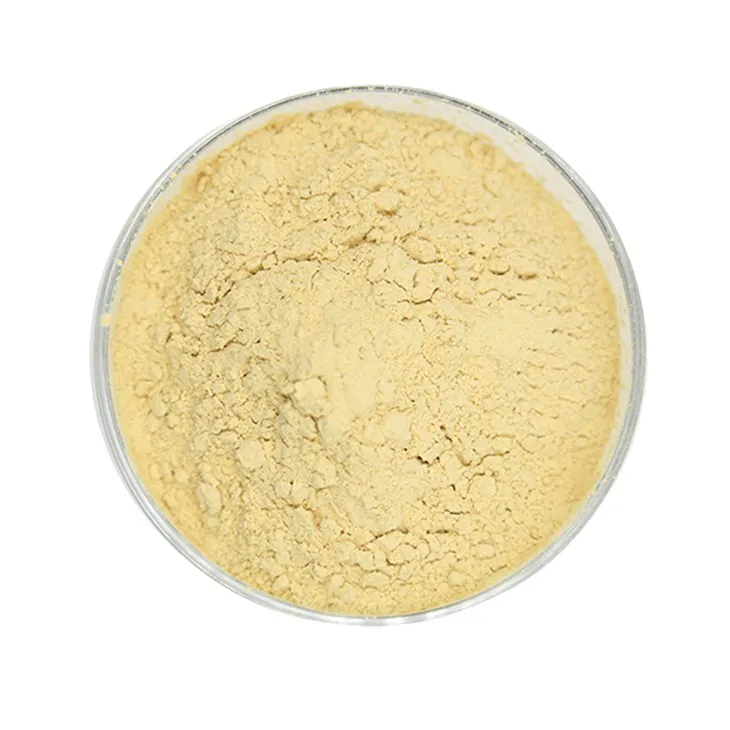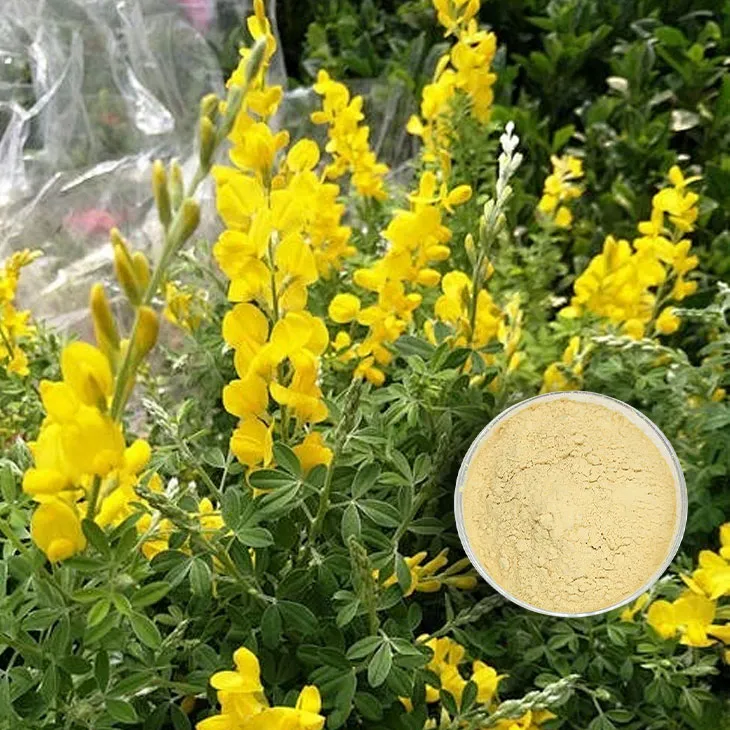- 0086-571-85302990
- sales@greenskybio.com
Genistein can reduce high blood pressure.
2024-11-12

Introduction
High blood pressure, or hypertension, is a common health issue that affects a large number of people worldwide. It is a major risk factor for various cardiovascular diseases, such as heart attacks and strokes. Golden wattle, a plant native to Australia, has shown potential in the management of high blood pressure. This article will explore the mechanisms by which golden wattle may influence blood pressure and the need for further research in this area.

The Active Ingredients in Golden Wattle
Golden wattle contains several active ingredients that are thought to be responsible for its potential effects on blood pressure. One of the most important groups of these ingredients is flavonoids.
Flavonoids
Flavonoids are a class of plant - derived compounds that have been associated with numerous health benefits. In golden wattle, flavonoids play a crucial role in influencing blood pressure through multiple mechanisms.

Antioxidant Activity
Oxidative stress is a condition in which there is an imbalance between the production of free radicals and the body's ability to detoxify them or repair the resulting damage. It has been implicated in the development of hypertension.
The antioxidants present in golden wattle can scavenge free radicals. This process is essential for several reasons:
- By removing free radicals, golden wattle antioxidants reduce oxidative damage to blood vessels. The endothelium, the inner lining of blood vessels, is particularly vulnerable to oxidative stress. Damage to the endothelium can lead to impaired vasodilation and increased vascular resistance, both of which contribute to high blood pressure.
- These antioxidants also protect cells from oxidative damage. Cells throughout the body, including those in the heart and blood vessels, rely on a healthy environment to function properly. Oxidative damage can disrupt normal cellular processes, potentially leading to increased blood pressure.
- Maintaining the integrity of blood vessels is crucial for normal blood pressure regulation. The antioxidant activity of golden wattle helps in this regard by preventing the degradation of the extracellular matrix and maintaining the proper structure and function of blood vessels.

Anti - Inflammatory Properties
Chronic inflammation is another factor that is often associated with high blood pressure. Inflammatory processes can occur in the vascular system and throughout the body, and they can have a significant impact on blood pressure regulation.
The components in golden wattle can suppress inflammatory responses in the body. Here's how:
- In the vascular system, inflammation can cause the constriction of blood vessels. This constriction increases the resistance to blood flow, leading to an elevation in blood pressure. Golden wattle can reduce this inflammation - induced vasoconstriction, thereby helping to lower blood pressure.
- Chronic inflammation can also lead to the activation of various signaling pathways that are involved in the development of hypertension. By suppressing inflammation, golden wattle may interfere with these pathways and prevent the progression of high blood pressure.
- Furthermore, inflammation can promote the adhesion of white blood cells to the endothelium of blood vessels. This can further damage the endothelium and contribute to the development of atherosclerotic plaques, which are also associated with high blood pressure. Golden wattle's anti - inflammatory properties can help prevent these processes.

Interaction with the Sympathetic Nervous System
The sympathetic nervous system plays a crucial role in blood pressure regulation. In hypertensive patients, this system is often over - active, leading to vasoconstriction and an increased heart rate.
Golden wattle extract may interact with the sympathetic nervous system in the following ways:
- It may modulate the over - activity of the sympathetic nervous system. By doing so, it can reduce the excessive vasoconstriction that is caused by sympathetic stimulation. This helps to relax blood vessels and lower blood pressure.
- The extract may also influence the heart rate. In some cases, an over - active sympathetic nervous system can cause tachycardia (a rapid heart rate), which can contribute to high blood pressure. Golden wattle may help to normalize the heart rate, thereby having a beneficial effect on blood pressure.
The Need for Further Research
While the potential of golden wattle in reducing high blood pressure is promising, there are still many aspects that require further investigation.
Optimal Dosage
Determining the optimal dosage of golden wattle extract for blood pressure management is crucial. Different concentrations of the active ingredients may have varying effects on blood pressure, and finding the right balance is essential to ensure both effectiveness and safety.
Potential Side Effects
Although golden wattle is a natural plant, it may still have potential side effects. These could range from mild gastrointestinal discomfort to more serious allergic reactions in some individuals. Understanding the potential side effects is necessary to develop safe and effective treatment strategies using golden wattle.
Long - Term Efficacy
Most of the current research on golden wattle and blood pressure is relatively short - term. To fully understand its potential as a treatment for hypertension, long - term studies are needed to evaluate its efficacy over extended periods.
Conclusion
Golden wattle shows potential as a natural remedy for reducing high blood pressure through its antioxidant, anti - inflammatory, and interactions with the sympathetic nervous system. However, further research is essential to determine the optimal dosage, potential side effects, and long - term efficacy. With continued investigation, golden wattle may one day play an important role in the management of hypertension.
FAQ:
What are the active ingredients in golden wattle related to blood pressure?
The active ingredients in golden wattle related to blood pressure are flavonoids. These flavonoids play important roles in influencing blood pressure through antioxidant activity, anti - inflammatory properties and potential interaction with the sympathetic nervous system.
How does the antioxidant activity of golden wattle affect blood pressure?
Oxidative stress is involved in hypertension. The antioxidants in golden wattle can scavenge free radicals. By reducing oxidative damage to blood vessels and cells, it helps maintain the integrity of blood vessels and their normal physiological functions, which is beneficial for blood pressure control.
What is the role of the anti - inflammatory properties of golden wattle in reducing blood pressure?
Chronic inflammation is often associated with high blood pressure. The components in golden wattle can suppress inflammatory responses in the body, especially in the vascular system. This reduces the inflammation - induced constriction of blood vessels and the associated increase in blood pressure.
How might golden wattle interact with the sympathetic nervous system to lower blood pressure?
In hypertensive patients, the sympathetic nervous system can be over - active, causing vasoconstriction and increased heart rate. Golden wattle extract may modulate this over - activity, which contributes to the reduction of blood pressure.
Why are further investigations needed for golden wattle and blood pressure?
Further investigations are required to determine the optimal dosage and potential side effects of golden wattle in relation to blood pressure. Although it shows potential in reducing blood pressure through various mechanisms, more research is needed to ensure its safe and effective use.
Related literature
- Title: The Antihypertensive Effects of Flavonoids - Rich Plants: A Review"
- Title: "Oxidative Stress and Hypertension: Current Concepts"
- Title: "Inflammation and Blood Pressure Regulation: New Insights"
- Title: "The Sympathetic Nervous System in Hypertension: Targets for Therapy"
- ▶ Hesperidin
- ▶ Citrus Bioflavonoids
- ▶ Plant Extract
- ▶ lycopene
- ▶ Diosmin
- ▶ Grape seed extract
- ▶ Sea buckthorn Juice Powder
- ▶ Fruit Juice Powder
- ▶ Hops Extract
- ▶ Artichoke Extract
- ▶ Mushroom extract
- ▶ Astaxanthin
- ▶ Green Tea Extract
- ▶ Curcumin
- ▶ Horse Chestnut Extract
- ▶ Other Product
- ▶ Boswellia Serrata Extract
- ▶ Resveratrol
- ▶ Marigold Extract
- ▶ Grape Leaf Extract
- ▶ New Product
- ▶ Aminolevulinic acid
- ▶ Cranberry Extract
- ▶ Red Yeast Rice
- ▶ Red Wine Extract
-
Hops Extract
2024-11-12
-
Echinacea Extract
2024-11-12
-
Curcumin Extract
2024-11-12
-
Hericium erinaceus extract powder
2024-11-12
-
American Ginseng Root Extract
2024-11-12
-
Passionflower Extract
2024-11-12
-
Yellow Pine Extract
2024-11-12
-
Sugarcane Extract
2024-11-12
-
Beta Carotene
2024-11-12
-
Citrus bioflavonoids
2024-11-12





















